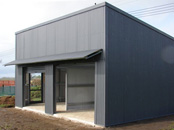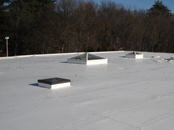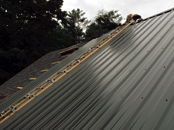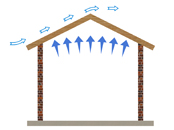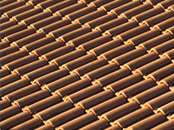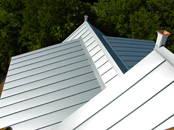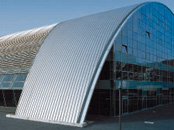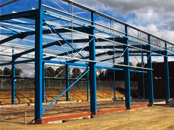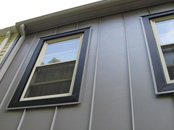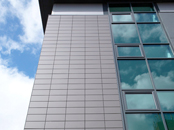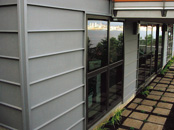Overview
Anti-sag support for cold-rolled members is required in situations where loadings would induce deflection or torsion of the cold-rolled member outside design limits. These limits may be specified by codes of building practice, cladding material manufacturers, industry representative organisations or the cold-rolled manufacturer amongst others. Adherence to these limits is essential in ensuring that structural integrity is achieved as well as providing a support structure for cladding materials.
Implementation of Anti-sag Support System
The images below depict a selection of everyday situations where anti-sag support is required. Choose the appropriate link for guidance on the selection and implementation of the most appropriate anti-sag system.
Note: Due to the sizeable choice of cladding systems and fixing methods and the continuous advancements in the development of same this section does not present an exhaustive source of guidance. Individual building geometry, prevailing weather conditions, intended purpose of the structure and the likes may dictate alternative systems to those shown. The information provided should be considered in tandem with the specific details of the structure in question when formulating an anti sag solution.
Use the Anti-sag support for standard roof with these additional requirements for mono pitch roof
Use the Anti-sag support for standard roof with these additional requirements for longer or steeper slopes
Use the Anti-sag support for standard sheeting rails with these additional requirements for non-restraining wall cladding
Use the Anti-sag support for standard sheeting rails with these additional requirements for higher elevations and heavy wall cladding
Use the Anti-sag support for standard sheeting rails with these additional requirements for horizontally laid cladding



